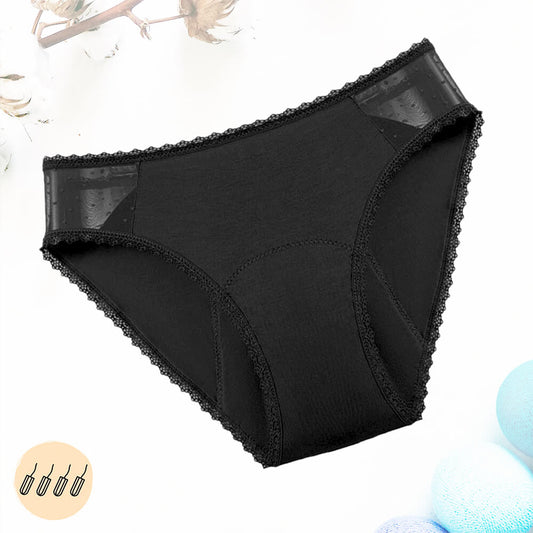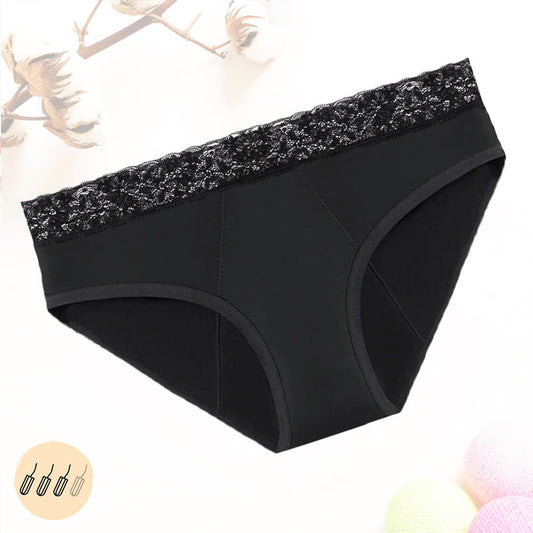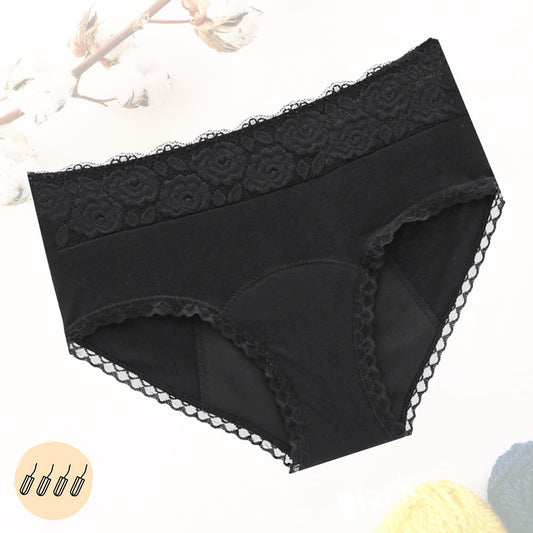
During menstruation, the uterus contracts under the effect of hormonal substance to expel the mucous membrane. Menstrual pain (dysmenorrhea) is a shooting pain that many women experience before or during their period.
Menstrual Pain Without Periods
The period-like pelvic pain may occur at times when there are no periods or may be due to conditions other than the menstrual cycle. It is sometimes difficult to determine the exact reason for these period cramps and pains.
Menstrual pain without periods is often caused by uterine cramps. These cramps can be caused by muscular contractions of the uterus or hormonal disorders.
Common causes of uterine cramps without periods can include:
- The hormonal disorders such as endometriosis or uterine fibromatosis
- The gynecological disorders such as pelvic inflammation or ovarian cysts
- Disorders related to stress and anxiety
- The digestive disorders such as constipation or bloating
Causes of Menstrual Cramps
Menstrual cramps usually occur in the lower abdomen or pelvis region. When your menstrual pain or vaginal discharge do not coincide with your period, they may not be related to your menstrual cycle.
There are various reasons why you might have period cramps without getting your period. Cramps can occur at any time during the menstrual cycle and although they are often nothing to worry about, some cases require special attention.
- Pregnancy
Another common reason why you might have menstrual cramps without a period is pregnancy or ectopic pregnancy. At the time of implantation, the cramps often appear when the embryo implants in your uterine lining. It's usually an early sign of pregnancy.

Ectopic pregnancy occurs when a fertilized egg implants and grows outside the uterus. Most often this happens in one of your two tubes.
- ovulation
Ovulation is the most common reason for menstrual pain outside of your period. Ovulation usually occurs within 10 to 14 days of your period when your ovaries release an egg. This can cause cramping or sharp pain in the lower abdomen.
- Endometriosis
Endometriosis occurs when the lining of the womb (endometrium) begins to grow outside the uterus. During menstruation, your mucous membrane cannot be eliminated by your body causing cramping, heavy bleeding, irritation or inflammation.
- Ovarian Cysts
Ovarian cysts can also cause cramping. These cysts can form when the fluid-filled sacs around your ovaries don't allow an egg to pass for ovulation or don't close properly after the egg is released.
- Pelvic Inflammatory Disease
It is a bacterial infection that is usually transmitted sexually. It can affect the fallopian tubes, uterus, ovaries, vagina and cervix. You will have pain on both sides in the lower abdomen and lower back.
How to Reduce Menstrual Pain?
Although it's relatively common to experience menstrual cramps during your period, menstruation itself isn't the only reason you may experience this type of pain.
Various risk factors can increase your chances of having severe pelvic or menstrual cramps that are not directly related to your period such as a history of irregular menstrual flow, long cycles, smoking or depression.
How to get rid of period pain without medication?

To ease menstrual pain, there are many remedies that can help relieve cramps. It's important to remember that these techniques won't always work, especially with chronic conditions, but they can still relieve mild to moderate period pain.
- The heat
A little heat can help your muscles relax, improve blood circulation and relieve tension. A warm bath or the application of a heating pad to the lower abdomen can relieve menstrual cramps.
- Exercise
Even light exercise can release endorphins to reduce pain and relax your muscles. Ten minutes of yoga, stretching or walking may be enough to help you feel better. Relaxation techniques such as meditation can also help relieve period pain.
- The Food
A diet aimed at reducing menstrual pain should be high in fiber and minimally processed foods. Eat calcium-rich foods like beans, almonds, and green leafy vegetables. Choose foods rich in antioxidants, such as blueberries, tomatoes, cherries, squash and peppers.

Tea or herbal tea has anti-inflammatory properties that can reduce muscle spasms in the uterus that cause menstrual pain. Drinking water also prevents your body from retaining water and helps prevent bloating during your period.
- Hormonal Contraception
When cramps are caused by a hormonal imbalance, birth control can end period pain. In addition to thinning the uterine wall, contraception also helps regulate the duration and frequency of your periods.
When should you see a doctor for menstrual pain?
It is necessary to consult a doctor if you have recurrent and/or severe menstrual pain, or if you have associated symptoms such as abnormal bleeding, abdominal or pelvic pain, or digestive problems. It is also important to consult a doctor if you have a history of gynecological diseases or hormonal disorders, or if you have concerns about your reproductive health.
You should also see a doctor if you have menstrual pain without periods, irregular or unusual bleeding, or late periods. These symptoms can be caused by health issues such as hormonal disorders, gynecological disorders, or pregnancy disorders, and it is important to evaluate them for proper diagnosis and treatment.
Finally, it's also important to see a doctor if you experience any behavioral changes or signs of depression or anxiety associated with your period pain.




